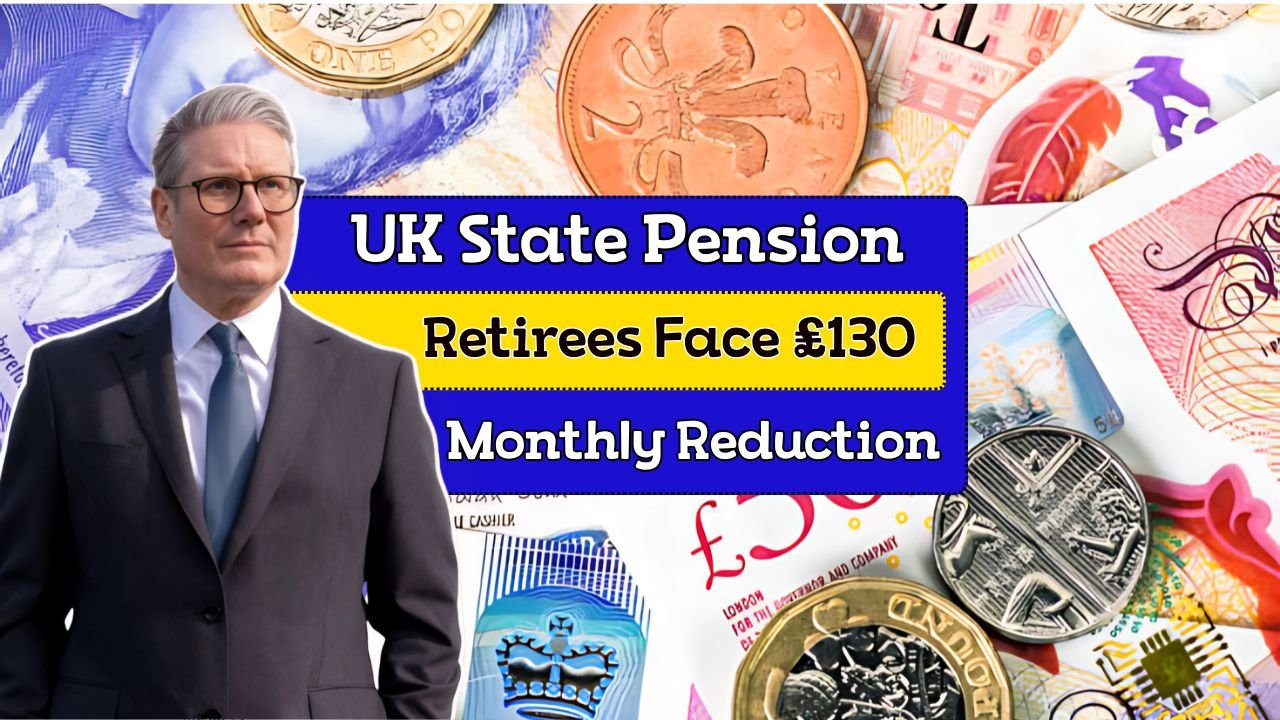Follow Us on WhatsApp
Get the latest updates directly on WhatsApp – motivation, news & more!
The state pension is one of the most important sources of income for millions of retirees in the United Kingdom. It provides a basic financial safety net for those who have spent years contributing to the National Insurance system. However, a major update set to take effect in 2025 has sparked concern across the country. Retirees could see their monthly payments reduced by around £130, creating uncertainty about how they will manage essential expenses.
This guide explains the details of the change, why it is happening, who will be affected, and what options pensioners have to prepare.
What is the UK State Pension?
The state pension is a regular payment made by the UK government to people who have reached retirement age and built up enough National Insurance contributions. For many, it forms the backbone of retirement income, alongside private savings or workplace pensions.
Currently, the state pension is protected by what is known as the “triple lock” system. This ensures payments rise each year in line with the highest of three measures: inflation, average earnings, or 2.5%. The policy was introduced to protect pensioners from falling behind the cost of living.
Why is the Pension Being Cut?
The government has announced a review of pension spending as part of wider economic reforms. With rising public debt and an ageing population, officials argue that the system is becoming too expensive to sustain in its current form.
As part of the 2025 reforms, monthly pension payments could be reduced by £130 for many retirees. The cut is expected to affect new claimants as well as some existing pensioners, depending on their individual circumstances.
How Much Will Retirees Lose?
At present, the full new state pension provides just over £220 per week, which is roughly £880 per month. A reduction of £130 means retirees could receive around £750 per month instead.
For pensioners already struggling with rising energy bills, rent, and food costs, this change represents a significant loss of income. Over the course of a year, it adds up to more than £1,500 in reduced support.
Who Will Be Affected?
Not every retiree will face the same level of reduction. The changes primarily affect:
- New claimants reaching state pension age from April 2025 onwards.
- Retirees with limited National Insurance contributions who receive partial pensions.
- Pensioners not receiving certain benefits that could help top up their income.
Those already in receipt of Pension Credit may see less impact, as the benefit is designed to provide a minimum guaranteed income for low-income retirees.
What is Happening to the Triple Lock?
The biggest question on the minds of pensioners is whether the triple lock guarantee will remain in place. Reports suggest that the system may be scaled back or temporarily suspended to reduce the financial strain on the government.
If the triple lock is weakened, annual increases will no longer keep pace with rising living costs, leading to further financial pressure for pensioners in the long term.
Reactions from Retirees and Experts
The news of the planned reduction has been met with strong criticism from pensioner groups and financial experts. Campaigners argue that cutting pensions by £130 a month could push thousands of older people into poverty, especially those who rely solely on the state pension.
Economists, however, point out that the government faces difficult decisions. With healthcare costs rising and a growing retired population, the state pension bill is becoming increasingly challenging to manage.
What Can Retirees Do to Prepare?
While the proposed cut cannot be avoided, retirees can take steps to reduce its impact. Some of the options include:
- Checking eligibility for Pension Credit to ensure additional support.
- Exploring workplace or private pensions to supplement income.
- Looking into part-time work or flexible retirement schemes for those able to continue earning.
- Reviewing household budgets to manage essential expenses more carefully.
Seeking financial advice early can also help pensioners make informed decisions about their future income.
Could the Decision Change?
It is worth noting that government policies are subject to political debate. Opposition parties and pensioner campaign groups are already putting pressure on ministers to reconsider the cuts. With a general election on the horizon, pension reform could become a major issue that influences how parties position themselves.
If public pressure grows strong enough, there is a possibility that the reduction could be delayed, adjusted, or even scrapped.
Final Thoughts
The planned reduction of £130 per month from the state pension in 2025 has caused widespread concern among retirees and those approaching retirement age. For many, the cut will mean having to make tough choices about how to cover daily expenses.
While the government argues the changes are necessary for financial sustainability, pensioners and campaigners fear it will increase hardship for older people. Retirees should stay informed about the upcoming reforms, check their entitlement to benefits, and seek financial advice where possible.
The coming months will be crucial, as debates continue and pressure mounts on policymakers. For now, pensioners are urged to prepare carefully and stay aware of how the changes may affect their future income.




